When They Were Boys (32 page)
Read When They Were Boys Online
Authors: Larry Kane
R
ORY
S
TORM DIDN
'
T HAVE THE BEST VOICE IN THE WORLD, IT WAS A BIT RAW, BUT AS A SHOWMAN THERE WAS NO ONE LIKE HIM
. I
N THE SIXTIES, HE WAS SO DYNAMIC, THE WAY HE MANEUVERED ACROSS THE STAGE
. H
E WAS SO ATHLETIC AND TRIM AND HE HAD MORE GYRATIONS THAN
E
LVIS OR
J
ERRY
L
EE
. I
F YOU WANT TO TRY TO PICTURE, THINK OF
R
OD
S
TEWART
. A
CTUALLY OVER THE YEARS
, R
OD
S
TEWART HAS REMINDED ME SO MUCH OF
R
ORY
. D
ID HE AFFECT ALL OF US
? N
O QUESTION
. H
E MADE US MORE DARING, OR WILLING TO BE MORE DARING
. I
T
'
S JUST HIS SPEAKING THAT POSED A PROBLEM
.
Stuttering or stammering, still difficult, remains out in the open in the modern day. It is a disability. But in the fifties and sixties, it was difficult to overcome. Rory could sing without hesitation, but speaking was anguishing, especially in his later careers as a deejay, salesman, and water-skiing instructor, all three jobs where clear communication was a prerequisite.
Former manager Turner, a Liverpool regular who at one time managed the Odd Spot Club, a local favorite, remembers the dilemma: “He was so confident, but the confidence went away when he started talking. It was so much of a contrast. Either way, he was likeable, and loved by his loyal friends, but it was difficult to connect with strangers, so difficult. It's one of the saddest things, Larry, because although he was insecure, he brought so much joy to people.”
“Rory was a favorite, after the group disbanded, as a deejay at bar mitzvahs and school events. I booked some of them,” recalls Southport's Ron Ellis. “He was easy to work with and the kids loved him. So did the parents. But, internally, he was a sad man. It is an irony because in his day, he was so electric on stage, his voice was so unique, he took so many physical risks, that, in effect, Rory Storm was Rod Stewart before Rod Stewart was Rod Stewart.”
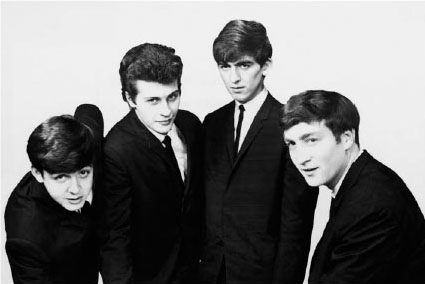
The early Beatles in a Liverpool studio in March 1962, five months before drummer Pete Best (second from left) faces the unthinkable.
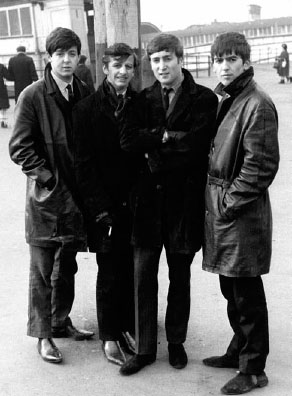
The “boys,” now with Ringo Starr as drummer, on a Liverpool street in February 1963.
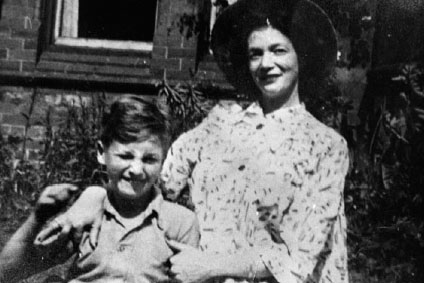
John Lennon with mother Julia outside of Mendipsâthe home of Julia's sister, Mimiâa residence he called home until early adulthood.
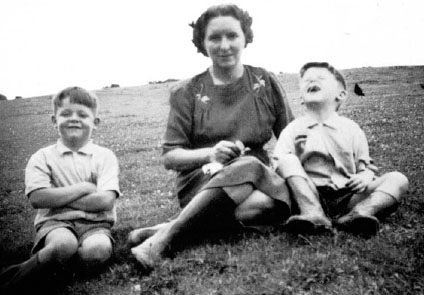
Mary McCartney with sons Paul (left) and Michael. Along with father James, the McCartneys rose from humble roots to join the middle class.
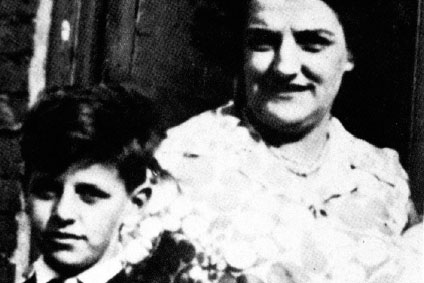
Richard Starkey (a.k.a. Ringo Starr) with mother Elsie, at home in the late 1940s. Elsie worked long hours to support her sickly son.
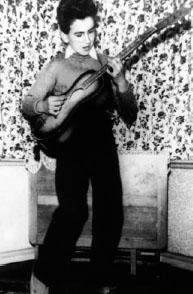
Twelve-year-old George Harrison with his favorite companion, the guitar, at home in Liverpool in 1955.
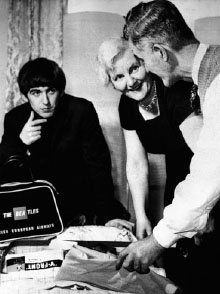
Proud parents Harry and Louise Harrison help George pack for the Beatles' first trip to America in February 1964.

John Lennon's first band, the Quarrymen, in the St. Peter's Church Rose Queen procession, July 6, 1957, the day of the historic first meeting between John and Paul.
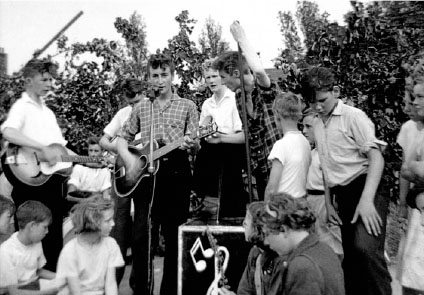
Later that day, John leads the Quarrymen onstage at the Rose Queen festival. (L-R) Eric Griffiths, Colin Hanton, Rod Davis, John Lennon, Pete Shotton, Len Garry.

Paul McCartney (second from left) is photographed for the first time with the Quarrymen, performing at the New Clubmoor Hall in Liverpool, November 1957.

Paul (left) and John perform with the Quarrymen at Mona Best's Casbah Club on August 19, 1959. The young lady to the right is Cynthia Powell, who would marry John in 1962.